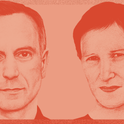Brexit, Donald Trump, Marine Le Pen, Alternative für Deutschland, politician Geert Wilders in the Netherlands. All channel rising anti-establishment sentiment that has been attributed to a predominantly white, low-skilled contingent—one that has lost out in the age of globalisation.
Indeed, recent analyses of electoral results from the EU referendum and the US presidential election suggest that there is a strong correlation between areas with lots of “Leave” voters, and Trump voters in the US, and areas with a high density of low-skilled workers. Research has shown that some regions in the UK, such as the midlands and north east, which have been more exposed to recent rises in manufacturing imports from China have more “Leave” voters. Comparable regions elsewhere include America’s rust belt, and the north of France, where a significant number of manufacturing jobs have disappeared.
But if these groups feel squeezed, is globalisation really to blame?
It might be one of many drivers. But a return to protectionism, through ending trade agreements and throwing up trade barriers, is unlikely to help. In fact, a variety of other factors may exacerbate inequality over the next years, such as skills, age and household type.
Technology may drive productivity gains, boost demand and, as such, have a positive effect on employment. However, low- and medium-skilled workers are more susceptible to being replaced by technologies than high-skilled workers are. As a consequence, unemployment for low-skilled occupations is expected to rise in the long-term. Moreover, earnings gained from productivity growth related to technology are heavily concentrated among high-income workers and families.
Young people (from ages 15 to 24) are also heavily affected by inequality. They were the only age group in the United States whose income had not grown in real terms over the past half-century, according to US Census data. And in Europe, when the financial crisis hit in 2008, they were disproportionally affected—one in five workers in this age group is unemployed, while in some countries, including Spain and Greece, only one in two young workers has a job. These conditions could leave lasting scars. Recent empirical evidence suggests that unemployment early in a career, or even graduating from school in times of economic crisis, can have lasting, harmful effects on young people's lifetime career arc and salaries.
One in four Europeans is estimated to be at risk of poverty and social exclusion in the EU, and some specific types of households are economically more vulnerable than others. The groups associated with the highest risk of poverty include single parents with dependent children (particularly single mothers), single-person households, and households with at least one member over age 65. These are exactly the household types projected to grow the most over the next decades. Ageing, increasing divorce and separation rates, and shifting gender roles contribute to the higher prevalence of these households.
Studies show that growing up in a single-parent home can have an effect on a child's educational and future employment performance. In the EU, 18 per cent of children under age 15 do not live with their parents. At the same time, Europe’s population is ageing—one in four people will be 65 or older by 2030. In addition, single-person households are the fastest-growing household type in Europe.
With so many factors at play, it may be too simplistic to blame only globalisation for the squeezing of the middle in the west. With so many aspects contributing to the equation, there is a big risk that certain groups will become trapped in poverty and social exclusion, with a vicious cycle of inequality continuing for these groups for years to come. Governments should focus on breaking this cycle.
Concentrating on bringing back manufacturing jobs from China to the west is not enough. The United States, UK and other countries in western Europe should increase its focus on education and training to make sure that the labour force has the skills needed to succeed in a future economy. It should also emphasise early childhood interventions and care to improve education and employment outcomes later in life. This approach should be less costly and more effective than having to repair these gaps down the road.
Stopping globalisation won’t halt the rise of inequality
There are other factors at play
December 20, 2016

FILE - In this Saturday, Dec. 17, 2016 file photo, U.S. President-elect Donald Trump speaks during a rally at Ladd-Peebles Stadium in Mobile, Ala. China said Saturday its military seized a U.S. Navy unmanned underwater glider in the South China Sea but it











